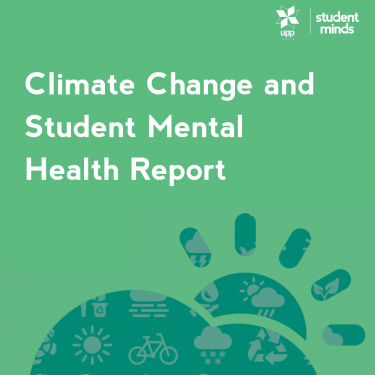Full data tables can be found here in the following formats pdf xlsx
Less than a quarter of the public in England support ‘decolonising’ the curriculum polling for the UPP Foundation and Higher Education Policy Institute (HEPI), conducted by Public First, finds.
People are largely hostile or in two minds about ‘decolonising’ the curriculum. 31% disagree with it, 33% neither agree or disagree, and only 23% of the public support it.
Yet, when asked but about broadening the curriculum to take in people, events, materials and subjects from across the world, 67% approve – with just 4% against.
The findings suggests universities can find widespread public support while implementing changes to the curriculum if it is presented thoughtfully.

A major new survey on public attitudes to higher education from the UPP Foundation and HEPI asked over 2,000 adults in England about the value of degrees, opinion on universities and campus culture. It found that support for universities is weaker amongst older people, Leave voters and the working classes.
This part of the survey actively sought to mirror polling from the United States, which found that Democrats were 34% more positive about universities than Republicans, with as many as 59% of Republicans having a negative view of universities. Similar patterns in sentiment were found towards universities in England, with Leave voters 18% less positive towards universities than Remainers (Leave 35% positive, Remain 53% positive). There was also a smaller (but noticeable) 8% gap between Conservative voters (41% positive) and Labour voters (49% positive).

Demand for studying a degree remains high. Nearly half of people (46%) would want to attend university if they were leaving school now and only one-quarter (26%) would not. And most parents want their children to go to university, including 70% of those with children aged 11 to 15.
Richard Brabner, Director of the UPP Foundation, said:
‘At times it feels like universities are in the middle of a never-ending culture war, with protagonists from both sides stoking division and polarisation. But as our polling shows, the way we talk about contentious issues, such as decolonisation, can narrow or broaden appeal.
‘This is an important lesson. There are gaps in support for the sector based on voting intention, age and class. If these gaps widen, universities will face a difficult future.
‘To grow public support, we need to demonstrate our worth to people who do not typically engage with universities – that means adopting approaches which persuade. Linking our actions to their values.’
Nick Hillman, the Director of the Higher Education Policy Institute, said:
‘Universities have been in the eye of the storm in recent years, with many people expressing strong and varied opinions on how they should change behaviour. So we set out to discover what people really believe by systematically measuring their views.
‘It is good to see so much goodwill towards universities but, given the role universities play, it is shocking that two-thirds of adults have either never visited a university or not done so in the last five years.
‘How universities talk about their work and their changing role in society matters a great deal. To win over hearts and minds, their governors, staff and students should use inclusive language, do more to explain their contribution to the country and invite more people on to campus.’
The report includes segmentation analysis to complement the traditional breakdown by age, social class and level of education. This identifies six key groups as well as an important minority – about 3 in 10 voters – who are actively disengaged from the subject. It is hoped this segmentation will help frame conversations among policymakers and the higher education sector.
- Salary Improvers, who make up one-in-six (16%) of the population, see university as a pathway to higher salaries. Salary Improvers tend to be from ABC1 socio-economic groups, are more likely to be between the ages of 45 and 64, and less likely to be 25-34. They have high rates of university participation amongst their children, and lean Conservative.
- Career Delayers, who make up one-in-five (15%) of the population, are sceptical of the value of university, believing there are other routes to successful careers and that university does not prepare people for the ‘real world’. Career Delayers tend to be non-graduates, have the highest proportion of females amongst the segments and 59% of them voted Leave.
- Elite Promoters, who make up one-in-eight (13%) of the population, recognise the importance of having a degree but believe universities are tickets to elites. Elite Promoters have the smallest percentage of ‘White British’ respondents, have the lowest average age and the lowest average income.
- University Pessimists, who make up one-in-nine (11%) of the population, are the most negative about the role of universities and regard students as ‘pretentious’. University Pessimists have the least amount of engagement with universities (in terms of studying and visiting), includes the highest proportion of men and skilled manual workers, and voted heavily for Leave and the Conservatives in 2019.
- Research Supporters, who make up one-in-11 (9%) of the population, are very positive about universities, principally as research institutions. Almost 1 in 5 Research Supporters have a postgraduate degree. It is the group which voted most heavily for Labour and Remain.
- University Optimists, who make up one-in-14 (7%) of the population, is overwhelming positive about all things universities. University Optimists have the highest incomes, tend to live in urban or suburban areas, and contain the highest proportion of people who attended university.
Full data tables can be found here in the following formats pdf xlsx








